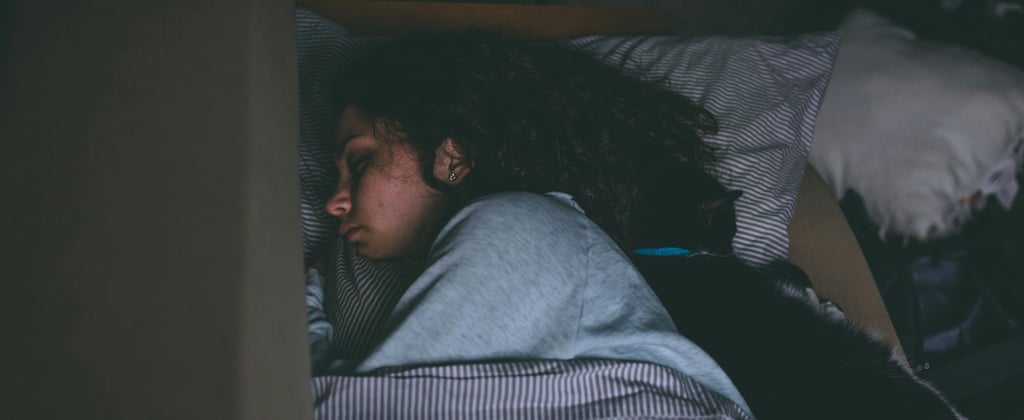The Science of Sleep
Explore how sleep works, why it matters and how to improve it. Learn the science behind sleep cycles, circadian rhythms and tips for better rest
Written by Juergen George, BSc Biotechnology
5/26/20253 min read
Why Do We Sleep?
Humans have evolved to align with the 24-hour cycle of day and night. Sleeping in one block at night helped early humans avoid predators, conserve energy, and adapt to changes in light and darkness.Circadian rhythms, biological patterns tied to the day-night cycle, regulate sleepiness and alertness.They work alongside the sleep drive, which intensifies the longer someone is awake.
Environmental cues like light and darkness influence these rhythms, with melatonin promoting sleep at night and diminishing with morning light. Body temperature fluctuations further support this cycle.
Stages of Sleep
Sleep cycles consist of three non-REM stages followed by a REM stage, with each full cycle lasting 1.5 to 2 hours.
· Stage N1: A light sleep stage lasting a few minutes.
· Stage N2: Makes up about 50% of sleep; brain activity slows, with bursts that aid memory and learning.
· Stage N3: Deep sleep, also known as slow-wave sleep, lowers blood pressure and heart rate, promotes growth hormone release, and accounts for 10–20% of the night.
· REM Sleep: Characterized by rapid eye movements and vivid dreams, with temporary muscle paralysis to prevent dream enactment. This stage supports memory consolidation and takes up 20–25% of sleep, increasing toward morning.
Each stage plays a vital role in restorative processes like healing, learning, and memory.
Importance of Sleep
· Emotional and mood regulation
· Sustained energy and efficiency
· Growth, healing, and repair
· Boosting the body’s immunity
· Enhancing judgment and decision-making
· Learning and memory consolidation
How Much Sleep Do I Need?
Age Group Recommended Sleep
Infant 12–16 hours
Toddler 11–14 hours
Preschool 10–13 hours
School-age 9–12 hours
Teen 8–10 hours
Adult 7 hours or more
Effects of Lack of Sleep
· Linked to chronic diseases such as heart disease, type 2 diabetes, and stroke
· Affects metabolism, leading to insulin resistance and obesity
· Weakens the immune system
· Impairs growth and healing
· Associated with mental health disorders like depression and anxiety
Sleep Disorders
These are conditions that affect one’s ability to fall asleep, maintain sleep, or regulate sleep duration.
Insomnia
A sleep disorder characterized by difficulty falling asleep or maintaining quality sleep. People with insomnia experience daytime tiredness and excessive sleepiness.
Types of Insomnia:
· Short-Term Insomnia: Lasts around three months or less.
· Chronic Insomnia: Occurs for more than three months and happens multiple times per week.
Treatment for Insomnia:
· Cognitive Behavioral Therapy for Insomnia (CBT-I): Involves sleep education, relaxation techniques, and sleep hygiene strategies.
· Medications: Options include melatonin agonists, non-benzodiazepines, orexin receptor antagonists, or over-the-counter sleep aids.
Sleep Apnea
A condition characterized by loud snoring due to upper airway collapse during sleep.
Narcolepsy
A disorder that causes excessive daytime sleepiness despite adequate nighttime sleep. It occurs due to the brain’s inability to regulate the sleep-wake cycle, increasing the risk of accidents. Symptoms include persistent sleepiness and sudden muscle weakness (cataplexy).
Parasomnias
A group of sleep disorders that involve unusual behaviors during sleep or transitions between sleep and wakefulness. These include:
· Sleepwalking
· Night terrors
· Sleep paralysis
· Bedwetting
Excessive Sleepiness
This refers to an abnormal urge to sleep during the day. It is different from compensatory sleep after an all-nighter.
How to Fall Asleep Faster and Improve Sleep Quality
1. Stick to a Sleep Schedule
Aim for 7-8 hours of sleep and maintain a consistent sleep-wake cycle, even on weekends. This helps regulate your circadian rhythm.
2. Watch What You Eat and Drink
Avoid going to bed hungry or overly full. Reduce nicotine, caffeine, and alcohol intake, as they can disrupt sleep.
3. Create a Restful Environment
Keep your bedroom cool (around 18.3°C or 65°F), dark, and quiet. A comfortable but slightly firm mattress and bedding are equally important.
4. Reduce Blue Light Exposure Before Bed
Screens emit blue light that reduces melatonin production. Avoid screens an hour before bed, or use blue light-blocking glasses.
5. Limit Daytime Naps
Keep naps under an hour and avoid napping late in the day. Adjust if you work night shifts.
6. Avoid Eating or Drinking Late at Night
Heavy meals close to bedtime can disrupt sleep.
7. Include Physical Activity in Your Daily Routine
Regular exercise promotes better sleep, but avoid intense workouts close to bedtime. Spending time outdoors daily is also beneficial.
8. Consider Supplementation (With Caution)
At Curious Circuit, we don’t actively recommend supplementation, but some supplements may help regulate sleep. Always consult a doctor before trying any over-the-counter options.
Common Sleep Supplements:
· Melatonin: Helps balance sleep-wake cycles.
· Magnesium: Supports relaxation and muscle function.
· Nitrate & Zinc: Can improve sleep quality.
· Omega-3 Fatty Acids: May help regulate sleep patterns.
Key Takeaways
Sleep is one of the five pillars of health and plays a critical role in overall well-being.
If sleep problems persist despite lifestyle changes, consult a healthcare professional.
What’s your go-to sleep tip?
You May Also Want to Read:
Disclaimer
This content is for informational purposes only and should not replace professional medical advice.

